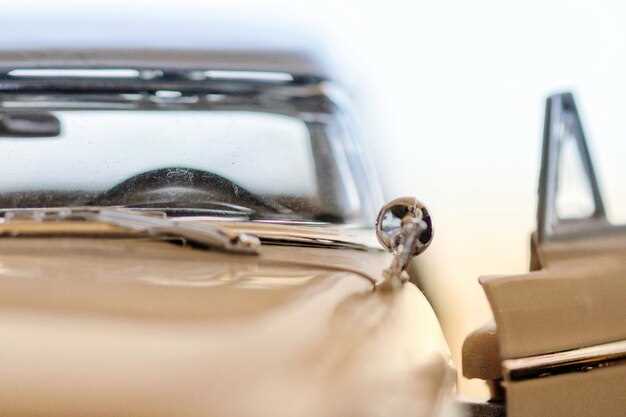
Owning a classic car is not just about having a mode of transportation; it’s about cherishing a piece of automotive history. However, with classic cars come unique challenges, especially concerning insurance. The right coverage is crucial to ensure that your investment is adequately protected against unforeseen events.
When considering insurance for your classic vehicle, it is essential to understand the specific needs of classic cars compared to regular vehicles. Standard policies may not provide the same level of protection, often overlooking the value appreciation that classic cars can experience over time. This guide delves into the intricacies of choosing the appropriate insurance policy tailored for your treasured automobile.
In this comprehensive overview, we will explore various factors to consider when insuring your classic car, including how to assess its value, determine the right type of policy, and the importance of specialized coverage options. With the right knowledge, you can safeguard your investment and enjoy your classic car with peace of mind.
Determining the Right Coverage for Your Classic Car

Choosing the appropriate insurance for your classic car requires careful consideration of several factors. First, you must understand the value of your vehicle. Classic cars can appreciate over time, making accurate valuation essential for proper protection. Consider seeking a professional appraisal to establish a fair market value, which will guide your insurance coverage limits.
Next, evaluate the types of coverage available. Standard insurance options include liability, collision, and comprehensive coverage. Liability insurance provides essential protection against third-party claims, while collision coverage helps recover costs for damages to your classic car in the event of an accident. Comprehensive coverage protects against non-collision-related incidents, such as theft or natural disasters.
Consider specialized classic car insurance policies specifically designed for vintage vehicles. These policies often offer agreed value coverage, ensuring that you receive the full appraised value of your car in case of a total loss. Additionally, they may provide unique benefits, including coverage for spare parts and restoration costs, which standard policies might exclude.
Another crucial aspect is evaluating usage. If you rarely drive your classic car, you might qualify for a low-mileage discount. Specifying the purpose of use–such as shows, parades, or weekend drives–can help tailor the protection and potentially lower premiums.
Finally, review your insurance provider’s reputation and customer reviews. Selecting a company that specializes in classic car insurance can ensure you receive knowledgeable support and claims handling. Make an informed choice to guarantee your prized vehicle has the right protection it deserves.
Finding Reliable Classic Car Insurance Providers

When it comes to protecting your valuable classic car, selecting the right insurance provider is essential. Unlike standard vehicles, classic cars often require specialized coverage that reflects their unique value, usage, and requirements. Here are some key steps to help you find reliable classic car insurance providers.
1. Research Specialized Insurers: Start your search by identifying insurance companies that specialize in classic and antique vehicles. These providers usually understand the specific needs for protection and can offer policies tailored to classic car owners.
2. Check Reviews and Ratings: A reputable insurance provider should have positive reviews from customers who own classic cars. Look for testimonials and ratings on independent review websites to gauge their reliability and customer service capabilities.
3. Ask About Coverage Options: Ensure potential insurers offer comprehensive coverage options suited for classic cars. This may include agreed value coverage, which guarantees a set amount for your classic car in case of a total loss, rather than the car’s depreciated market value.
4. Evaluate Customer Service: Good customer support is vital when insuring a classic car. Reach out to potential providers with queries about their policies to assess how promptly and effectively they respond. This interaction can provide valuable insight into their commitment to customer satisfaction.
5. Gather Multiple Quotes: Don’t settle for the first quote you receive. Obtain multiple quotes from different providers to compare rates, coverage options, and terms. This will ensure you find the best protection for your classic car without overpaying.
6. Check for Discounts: Inquire about any discounts that may apply to your classic car insurance policy. Some companies offer discounts for membership in classic car clubs or for vehicles that are stored in a garage, which can help reduce your premium.
By meticulously following these steps and concentrating on finding a provider that understands the importance of proper protection for your classic car, you can secure the best coverage suited to your specific needs.
Navigating Claims and Understanding Policy Limits
When it comes to classic car insurance, understanding how to navigate claims and the intricacies of policy limits is essential for any owner. Classic cars often hold significant value, both monetarily and sentimentally, making proper coverage vital in the event of damage or theft.
Firstly, familiarize yourself with the specific policy limits set by your insurance provider. Unlike standard auto insurance, classic car policies may have agreed value coverage, which means you and your insurer agree on the car’s value at the time the policy is issued. This eliminates depreciation concerns in claims. Ensure that you maintain updated appraisals to reflect any changes in your car’s worth over time.
In the event of a claim, document the damage thoroughly. Take clear photographs, gather repair estimates, and maintain a detailed record of any communication with your insurer. This documentation will help facilitate the claims process, ensuring that you receive the compensation you deserve.
Additionally, be aware of any deductibles associated with your policy. Classic car insurance may feature different deductibles compared to regular car insurance, influencing your payout in the event of a loss. Knowing these details in advance can help you manage expectations during the claims process.
Lastly, maintain open communication with your insurance agent. They can provide valuable guidance and clarification regarding your policy limits and the claims process. Understanding these elements will help you confidently navigate any issues that arise, ensuring your classic car remains protected and your investment is secure.
